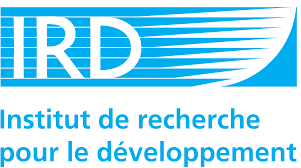The IRD (Institut de recherche pour le développement) is a multidisciplinary research institute dedicated to working closely with partner countries on global development issues. Placed under the joint supervision of the French Ministry of Research and the Ministry of Foreign Affairs and International
Development, the IRD uses an original approach on development research and expertise throughout its international network in over 90 countries. The IRD aims at using its research and tools for the benefit of countries that make science and innovation the prime levers for development.
In march 2015 and the appointment of a new governance, the IRD established a newly restructured organization engaged in a global approach to development. Thanks to its scientific excellence and international cooperation model, the IRD is positioning itself in a globalized research context as a scientific leader dedicated to positioning research for development as a major tool for the new development agenda.
Members:
Resources
Displaying 16 - 19 of 19La question foncière à l’épreuve de la reconstruction en Côte d’Ivoire
Le conflit ivoirien (2002-2011) a exacerbé des tensions foncières anciennes engendrées par d’intenses migrations agraires, notamment dans la zone forestière restée sous contrôle gouvernemental durant la crise. Une loi sur le domaine foncier votée en 1998 avait tenté d’apporter une réponse à ces tensions par une politique ambitieuse de sécurisation des droits coutumiers par l’enregistrement de titres de propriété.
Reshaping upland farming policies to support nature and livelihoods: lessons from soil erosion in Southeast Asia with emphasis on Lao PDR. [Report of the Management of Soil Erosion Consortium (MSEC) Project].
Ecosystem services of floodplain grasslands: Defining fodder production in the Tana delta
The “Lost Counties”
The colonial and postcolonial legacy of the “Lost Counties” land issue has recently resurfaced as a contentious ethno-political issue in Uganda. The aim of the paper is to critically examine the politics of belonging and land rights in relation to Ugandan land legislation and the “Lost Counties” issue. The empirically basis of this paper is primarily derived from field work in Kibaale District, during the period January to July 2004.





